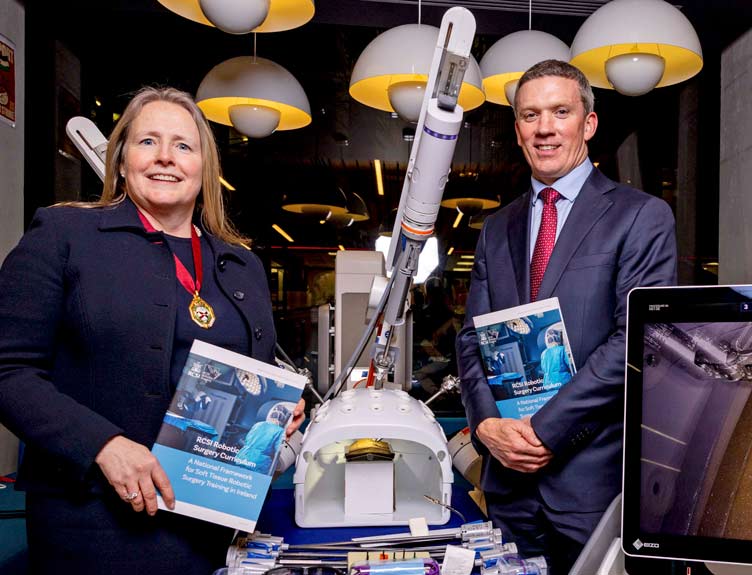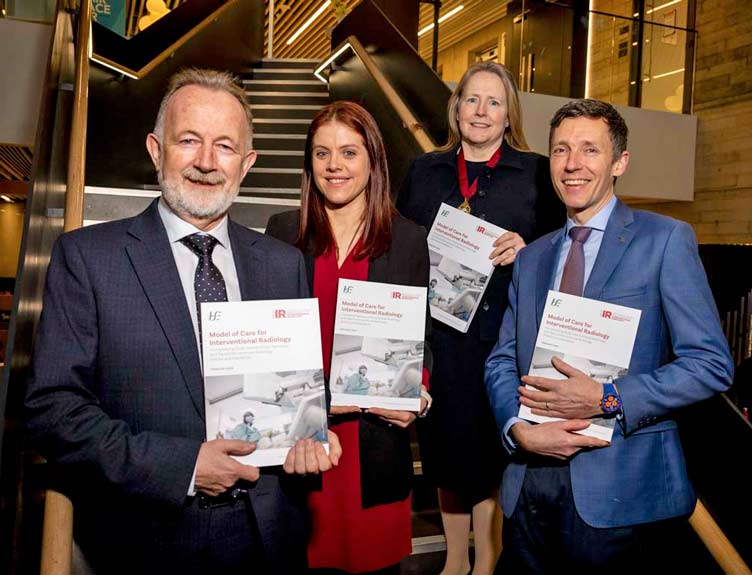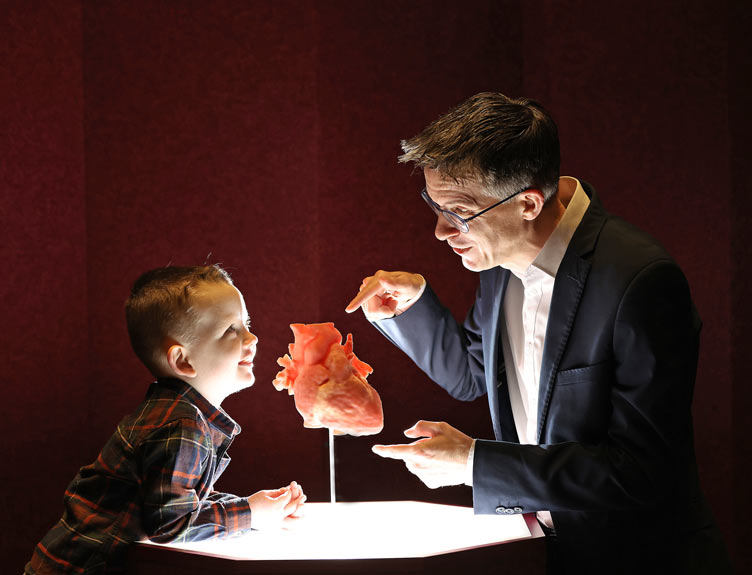Pandemic may have impacted babies' social communication skills
Lockdowns imposed by the COVID-19 pandemic may have impeded the social communication skills of babies born during these periods, suggests new research from RCSI University of Medicine and Health Sciences.
Published in the Archives of Disease in Childhood, the findings show that fewer communication milestones were met during the first year of life. While it is possible that these delays will be reversed as 'normal life' resumes, the researchers suggest children's development should be monitored to school age, to make sure there are no long-lasting effects.
The development of language in babies is complex, with younger babies fixating on the eyes of carers during interactions while older ones tend to shift their gaze from the eyes to the mouth. The advent of coronavirus vaccines, mass lockdowns and mask-wearing meant that babies' interactions with people outside the home were limited and access to visual and facial cues for language development potentially restricted.
To gauge the potential impact of these measures, researchers from RCSI and Children's Health Ireland assessed ten parentally-reported developmental outcomes for 309 'pandemic' babies at 12 months of age. The babies were part of the CORAL (Impact of CoronaVirus Pandemic on Allergic and Autoimmune Dysregulation in Infants Born During Lockdown) project run by Professor Jonathan Hourihane, Head of the Department of Paediatrics at RCSI. All had all been born during the first three months of the COVID-19 pandemic (March–May 2020) in Ireland.
The developmental outcomes included the ability to: crawl; side step along furniture; stand alone; pick up tiny objects with thumb and index finger (pincer grip); stack bricks; finger feed; know their own name; express one definite and meaningful word; point at objects; and wave 'bye-bye'.
These outcomes were compared a year after birth with those of 1,629 infants from the pre-pandemic BASELINE (Babies After SCOPE: Evaluating the Longitudinal Impact using Neurological and Nutritional Impact) study, which included babies born in Ireland between 2008 and 2011.
CORAL babies were born slightly earlier, on average, than the BASELINE babies, and there were significantly fewer first-born CORAL babies: 45% (138) vs 84% (1,364). The proportion of mothers educated to or attending tertiary-level education (postgraduate certificate or higher) was also higher in the CORAL group: 94.5% (292) vs 88% (1,431).
Comparison of the outcomes showed that slightly fewer CORAL infants had reached social communication developmental milestones, as reported by their parents, than BASELINE infants.
More CORAL infants were able to crawl (97.5% vs 91%), but fewer expressed one definite and meaningful word (77% vs just over 89%), could point (84% vs 93%) and could wave bye-bye (88% vs 94.5%).
After accounting for potentially influential factors, including the child's age when the questionnaire was completed, birth order and mother's educational attainment, differences in outcomes between the two groups were still evident.
Professor Hourihane commented: "Our research showed that CORAL babies were more likely to be crawling at the age of 12 months than their BASELINE counterparts, which might be because they were more likely to have spent more time at home and on the ground, with siblings home from school and parents working from home or isolating, rather than out of the home in cars and strollers.
"However, lockdown measures may have impacted the scope of language heard and sight of unmasked faces speaking to them, while also curtailing opportunities to encounter new items of interest which might prompt pointing, and the frequency of social contacts to enable them to learn to wave. However, due to the observational nature of this study, more research is required to determine cause and effect."
The researchers noted that, while neurodevelopment is part genetically mediated, parental education and social exposure have a significant role to play.
"Pandemic-associated social isolation appears to have impacted more on social communication skills than motor skills in babies born during the pandemic, compared with a historical cohort," said Dr Susan Byrne, RCSI Department of Paediatrics and FutureNeuro, SFI Research Centre for Chronic and Rare Neurological Diseases, and lead author on the paper. "Due to the pandemic there were limitations to this study including comparison to an historic cohort. We are currently analysing results from year 2 standardised developmental assessments in the CORAL cohort of children and this will give us a better assessment of communication in this group of children.
"Babies are resilient and inquisitive by nature, and it is very likely that with societal re-emergence and increase in social circles that their social communication skills will improve. However, this cohort and the global population of pandemic babies it represents will need to be followed up to school age to ensure that this is the case."



